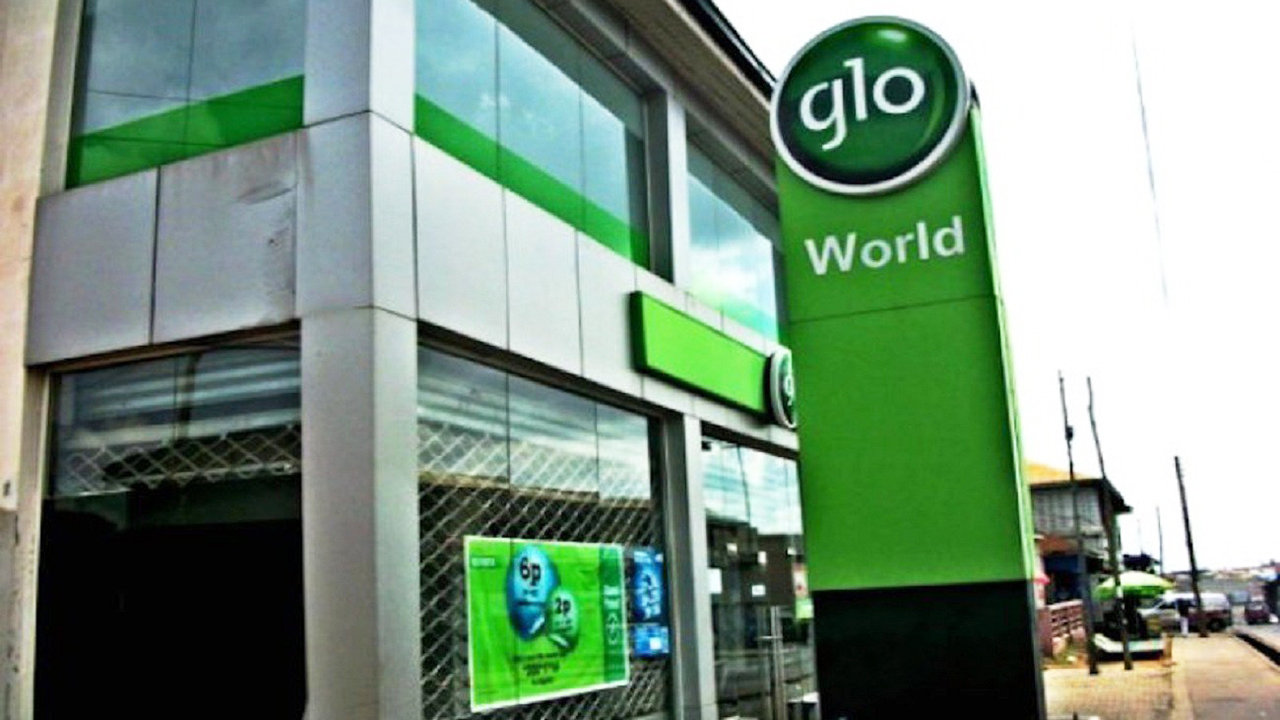Business
FBNHoldings Wows the Market with 2023 H1 Earnings Blowout

FBNHoldings (FBNH), the parent company of Nigeria’s pioneer Bank, First Bank of Nigeria Limited published stellar results, confounding analysts, and exciting investors. Equally as amazing as the spectacular results, which saw earnings per share surge by 234% to N5.19 was the fact that the banking behemoth was able to eke out this profit in a financially hostile policy environment where bank earnings have been squeezed. The Bank’s holding company has also been a subject of shareholder squabbles, which ordinarily should be a distraction to the management and a drag on profitability. But in spite of these challenges, the outstanding results are a testimony to the depth of its management and its capacity to execute a robust strategy.
What is Unique About FirstBank? (Late Entrant to African Markets) As a late entrant into the scramble for market share in the Sub-Saharan African continent, it was able to play catch up with its peers in this respect. In the last few years, FirstBank has been able to expand its international footprints not only across Africa but also in Europe and Asia with branches in the major markets of the United Kingdom, China, and Ghana. The core element of the bank’s strategy has been to leverage its huge investment in its Internet banking platforms with a fast transition into the digital space. Whilst its reputation as an old staid and orthodox bank is being replaced as a nimble modernised institution with a readiness to compete aggressively with its younger peers, FirstBank has not lost its legacy as a strong and sound institution. Most of the performance ratios especially its cost-to-income ratio of 46.8% coming down from a high of 70% four years ago reveals that its cost reduction and resource optimization strategy is paying off. Leveraging Economies of Scale is a Core Strategy FirstBank with 595 branches has 13% of all branches of banks and 13% of all Automated Teller Machines (ATMs) in Nigeria. The bank has consistently leveraged economies of scale, years of existence, and reputation, resulting in aggressive customer acquisition.
With a customer base of over 42 million, FirstBank processes 12% of the Nigerian banking industry’s payment volume. The bank’s current deposit portfolio of N9 trillion is one of the best in the Nigerian banking industry. The group is also reaping the benefits of crossentities collaboration as well as increased earnings contribution from international subsidiaries (30.0% in FY’22 compared to 25.5% in FY’21). Every Dog Has its Day in the SunTranslation Gains Have Helped but Transaction Losses Could Hinder Growth Banks with long dollar positions will have initial translation gains, however, if subsequently, they begin to have non-performing dollar assets, the translation gains may end up as transaction losses down the road. Nigeria’s oldest bank, FirstBank recorded a revaluation loss of N98bn due to huge naira devaluation stoked by the Foreign Exchange policy changes. However, the impact on the bank’s profitability was cushioned by over a 1,000% surge in fair value gains. FBNH’s exposure to foreign currency risk was mitigated by a decline in foreign currency (FCY) loans from 51.2% in FY’22 to 50.4% in Q1’23.
Strategy Consistency is Impacting Share Price Appreciation The share price of FBNHoldings has increased by an average of 131% per annum in two years to N18.65, returning enormous value to shareholders. The valuation remains attractive with a price-earnings multiple of 2.55x and an estimated fair value of N19.25. Earnings per share (EPS) at N5.19 Vs N1.55 in H1’22. Are There Inherent Weaknesses? FirstBank is poised to keep creating value for shareholders with a reorganised balance sheet position and a refocused management team. Though the impact of FX unification remains a major concern to Nigerian banks’ profitability and liquidity, FBNHolding’s long position in dollardenominated assets gives it an edge. We also anticipate an increase in trading activities by the bank in the event of a drop in the backlog of FX requests and an influx of new foreign transactions. This could potentially drive-up trading volumes, increase commissions earned on trades, as well as gains from FX sales. We expect the bank to deliver an impressive full-year 2023 result. A rising interest rate environment will boost net interest margin, and solid e-banking operations will support strong non-interest income growth. We also believe that the bank will be able to maintain a sound asset quality position within the regulatory threshold thanks to its effective operational and risk management system. FBN Holdings Plc (FBNH) remains a top player in the industry with a Strong franchise, reliable funding structure and brand recognition, robust customer base, unique ebusiness and agency capabilities, contributions from overseas subsidiaries, and a newly reorganised management team.
What Does the Future Hold Out for FBNHoldings? In an industry where competitive pressures and the intensity of rivalry increases, a consolidation is almost imminent. We expect that the field will narrow after a possible increase in the minimum capital requirements in the industry as impairment of profitability resulting from non-performing loans begins to hurt industry players. We also expect big and solid institutions like FBNHoldings to be in a position to gobble the smaller and less viable rivals. The name of the game in the next few years will be ‘’the survival of the fittest’’.
Culled from Financial Derivatives Company
Business
FirstBank Partners Verve to Issue Free Debit Cards in Nationwide Promo

First Bank of Nigeria Limited (FirstBank), Nigeria’s premier and leading financial inclusion services provider, has announced the launch of the Verve Flash Promo, a special initiative rewarding customers with free Verve cards.
The campaign, which commenced on 6 October 2025, and will run until 30 January 2026, is exclusively targeted at FirstBank customers whose ATM cards have expired.
The free cards will be issued daily to 131 customers on a first-come, first-served basis across the Bank’s branches, nationwide. FirstBank’s unwavering commitment to convenience, accessibility, and customer satisfaction.
Speaking on the rewards to FirstBank customers, Chuma Ezirim, the Group Executive, e-Business and Retail Products at FirstBank, said: “The Verve Flash Promo is not just about rewarding customers with free verve debit cards; it is about celebrating our legacy of 131 years of trust, resilience, and innovation in the Nigerian financial services industry. At FirstBank, we remain committed to providing customer-centric solutions that enable secure, seamless, and convenient payment experiences. Partnering with Verve International on these initiatives, including the Verve Good Life promo, underscores our shared vision of deepening financial inclusion while rewarding our loyal customers for their continuous patronage.”
Also commenting, Vincent Ogbunude, Managing Director, Verve International, noted:
“Through strategic collaborations like this with FirstBank, we continue to demonstrate Verve’s commitment to enhancing access to seamless payment solutions for every Nigerian. The Verve Flash Promo not only rewards loyal customers but also reinforces our vision of making everyday transactions more rewarding, secure, and convenient. As we extend the Good Life Promo, we remain steadfast in our goal of deepening financial inclusion while delivering real value to Verve cardholders across the country.”
Meanwhile, the ongoing Verve Good Life promo, designed to reward Verve debit card holders for using their cards at specific merchant points, has been extended to 30 November 2025.
During the period, Verve Card holders enjoy 10% cashback at The Place Restaurant, Quickteller, Buypower, Filmhouse, AlliExpress, Addide Supermarkets, and Chowdeck app every Thursday to Sunday.
Verve cardholders can now enjoy a 10% cashback on the Google Play Store any day of the week throughout the Good Life Promo, which runs until 30 November 2025. Moreso, every transaction made with a Verve card whether on ATMs, POS terminals, or online platforms automatically earns customers a chance to win up to ₦1,000,000.
Business
Glo Enhances Data Bundles, Offers More Data at No Extra Cost

Nigeria’s leading telecommunications company, Globacom, has announced enhancement of its data bundles to give subscribers more data volume at the same affordable prices.
The upgrade reinforces the company’s commitment to providing superior value and exceptional customer satisfaction.
The upgraded Glo Data Bundles are enhanced versions of the existing daily, weekly, and monthly plans, giving subscribers more data at no additional cost.
These improvements offer users greater freedom and convenience to enjoy their favourite online activities from streaming and gaming to social media, video calls, and more.
For daily users, the ₦100 plan has been upgraded from 105MB to 125MB, giving light internet users even more data to browse, chat, and stream short videos conveniently.
The weekly bundles have also received notable boosts, such as the ₦1,500 plan, which now offers 6GB instead of 5.9GB, enabling subscribers to stay connected longer.
Heavy data consumers will also enjoy remarkable value on the monthly plans. The ₦2,000 bundle now gives 6.25GB, while the ₦10,000 package has been enhanced from 38GB to 42GB, allowing users to do more from video streaming and large file downloads to remote work and virtual meetings.
Students are not left out, as the Campus Booster Plan has been upgraded with higher data allowances, ensuring seamless access to academic resources and social networks while on campus.
Globacom noted that the revised bundles are available to all Glo customers prepaid, postpaid, and hybrid and can be activated by dialing *312#, using the Glo Café app (available on Android and iOS), or visiting hsi.glo.com.
The company added that subscribers can use, share, or gift data through *312# or the Glo Café app. Customers will also continue to receive data usage alerts at 75% and 100% consumption levels to help monitor usage effectively.
Unused data is automatically rolled over upon renewal before expiry or when a new plan is purchased within the grace period (ranging from one to seven days, depending on the plan).
Globacom reaffirmed its commitment to empowering Nigerians with reliable and affordable data access, urging customers to take advantage of the revised data bundles that combine affordability, quality, and more browsing power ensuring every Glo subscriber enjoys more data without paying more.
Business
Maiden Flight to Heathrow Airport: Fidelity Bank Hails Air Peace

Fidelity Bank Plc has congratulated Air Peace on the successful launch of its maiden direct flight from Lagos to London Heathrow, describing the milestone as a significant achievement for Nigeria’s aviation sector and a testament to the power of indigenous partnerships.
The commendation was delivered by Dr. Nneka Onyeali-Ikpe, managing director of Fidelity Bank, during a special event held in Lagos to celebrate the airline’s expansion into the European market.
“This is not just a win for Air Peace, but a win for Nigeria,” Onyeali-Ikpe said. “It reflects the strength of home-grown businesses and the impact of strategic financial support in enabling national champions to thrive on the global stage.”
Nigeria CommunicationsWeek reports that Fidelity Bank has played a pivotal role in Air Peace’s growth, providing early financial backing and advisory services that helped the airline become the largest carrier in West Africa. The bank continues to support Air Peace through payment processing and other financial services
The launch of the London route marks a new chapter for Air Peace, which now joins a select group of African airlines operating direct flights to Heathrow.
The development is expected to boost tourism, trade, and connectivity between Nigeria and the United Kingdom.
Speaking at the event, Allen Onyema, Chairman of Air Peace, expressed gratitude to Fidelity Bank for its unwavering support and reaffirmed the airline’s commitment to excellence and service.
“This partnership has been instrumental in our journey,” Onyema said. “We are proud to fly the Nigerian flag across international skies.”
Industry stakeholders present at the event praised the collaboration between the two companies as a model for sustainable business growth and national development.






